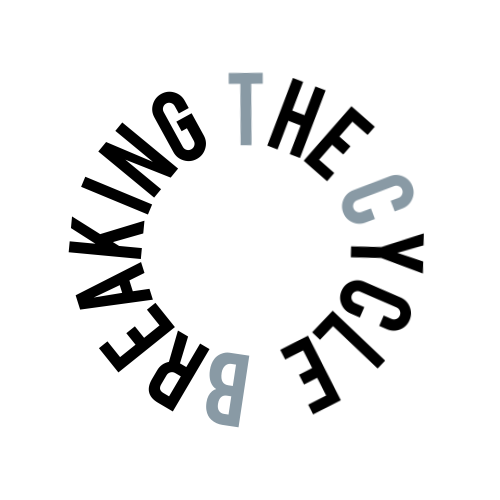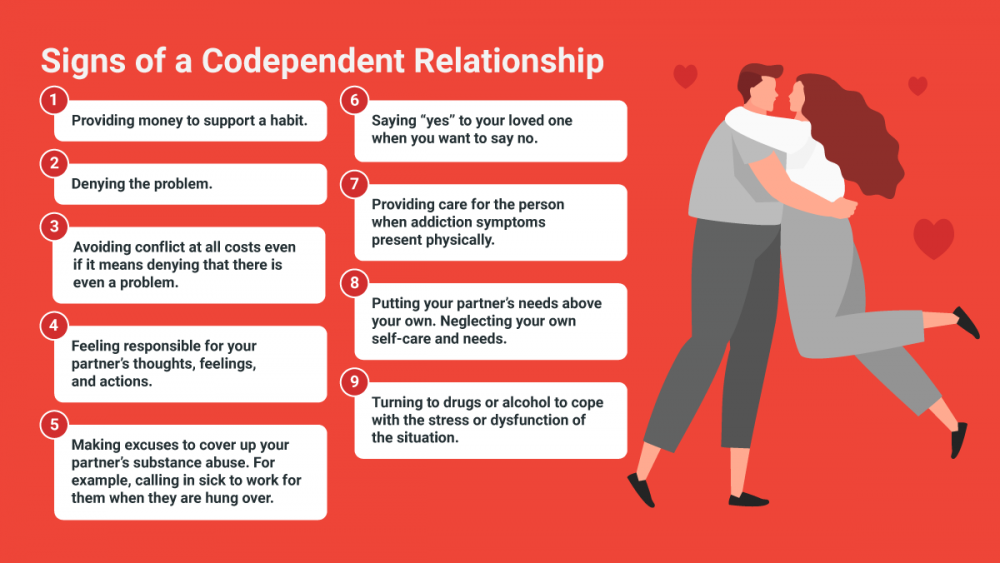There are a number of explanations for Codependency, which might explain why there is confusion and misunderstanding about what it means. Back in the 80’s the term was first realized when it became clear that the partners of addicts in a number of treatment centers all behaved the same, that the term Codependency was born. Today we know that whilst the partners of addicts are codependent, that not everyone that is codependent has been impacted by another’s addiction. But if we are codependent we grew up with faulty parenting. I describe Codependency to my clients as “abandonment of self”. That is, we have lost touch with who we are and what we want. We are shame-based and have low self-esteem at our core. To feel better about ourselves, we look outside ourselves for approval and verification. This is where after time the problems start showing up in our lives: o Attracting toxic relationships or narcissistic personalities and being unable to leave these relationships. o Seeking other people’s approval in the form of ‘taking care, catering, or rescuing of them’, then being resentful for not receiving the validation or approval we feel we deserve for doing this. o Struggling with setting…
The mind is like a parachute – it works best when it is open.As a codependent, I can quickly make assumptions and jump to conclusions.I can easily form and hold fast to my opinions.An open and understanding mind never assumes, doesn’t jump to conclusions, and won’t hold fast to any opinion. Yet we know there are always many points of view, and that seeing each one is much more rewarding and enlightening.Take care, Maria.
The biggest disease of the mind is over-thinking, especially too much thinking about others: What they do, what they did, what they should do, what they should have done, what they said, what you wished they had said, does any of this sound familiar?These is totally Codependent behavior and I have suffered from this over thinking and over analyzing for most of my adult life. That is, until I realized what I was actually doing.Robbing me of my inherent serenity and not getting what I wanted from life. I was helping others achieve their goals, whilst mine took a back seat. I never fully understood how this thinking robbed me of so much and that it was part and parcel of my codependent behavior, focusing too much on others to my detriment.Thinking too much is like eating too much. The heaviness makes it impossible to remain light and flexible.With this over thinking, we get stuck on little things and gradually the little things become huge things which we cannot shake off. I can still hear my other half say to me, you are over thinking it, you are making too much of something that is not that important. In the…
As a codependent, my inner critic is loud and strong. Since I started on the voyage to recover from my childhood and my co-dependency, I have learned that this negative voice in my head was my parents voice and not my true self.Realizing this has been a game changer for me in life. I now know that I can be who I am, and live the life of my dreams. Much is possible.However, if my self-care and focus on me takes a back seat, I can become excessively critical towards others, meaning that I go in the wrong direction without realizing this initially. I am very good at spotting mistakes, but I have had to learn that it is equally good to develop the skill of spotting goodness. My childhood impaired my radar for discerning the good from the bad, but over time, working on me, my radar is the best it has ever been.If I can see what is good in others, or in situations, and go beyond the curtain of negativity, I feel better about myself. If I constantly think "he or she is wrong", I create a barrier which blocks me from reaching my own goodness.Food for…
I saw the heading and it grabbed my attention.For one, I am passionate about raising awareness for men and women - but particularly women - about what a healthy relationship looks like.Why?I grew up with untreated addiction, so I never saw what a healthy relationship looked like. I had no modelling. I did not know what healthy anything looked like. No wonder, that in my first marriage I married the union of my parents and their family dynamics, alcoholism and gambling addiction in one person, and in one go!!My first marriage continued the generational line of addiction, drama, and denial. Take it from me, my early adult life was emotionally fraught and very emotionally painful at best.Those days are behind me now because I wanted a health relationship and I committed to only being in one. I worked very hard in therapy and several 12 step recovery programs to break the pattern of attracting unhealthy partners. It helped. Over the last 20 years this is what I learned about what emotionally healthy women never do in their love life:Ignore their friends due to a relationshipDon’t give up their financial securityControl or change their partnerDon’t give up on their goals and dreamsDon’t…
The most powerful anchor on your potential to soar high in life is the past. The past contains the dead weight of experience, learned beliefs and all your mistakes. Life cannot truly begin until you are able to say goodbye to the legacies of yesterday at will. Like a filing cabinet, the past is a resource of information for learning, but it is not a place to live. When you go to work do you spend your day in the filing cabinet?The problem for many folks (I am one of these) is that to be Co-dependent can mean living in the past.What do I mean by this?IF you grew up with untreated addiction or maybe suffered some trauma in your young life or early adulthood you can become co-dependent in your behaviour. That is denying ourselves, our needs and wants, and focusing on others to feel better about ourselves.I have yet to meet a co-dependent person, (who has done very little work on themselves) to not live in the past unknowingly. Do you live in the past? This can mean bitching and griping about family, parents, or past romantic relationships.To recover from co-dependency, we must address our past trauma’s. There…
I came across the writing below and I stopped. I was thinking to myself at the time, huh? As a Co-dependent is it possible to choose our feelings? Most Co-dependents don’t know how they feel due to be being so detached from themselves and wanting to avoid their feelings at all costs. Feelings can be too painful.How could Co-dependents possibly choose their feelings?That said, the note below struck a chord. It made me think for a moment and recognize I needed tocheck-in with how I was feeling. I also learned the following:1. I am not to feel bad about my feelings and not to be hard on myself for having these feelings.2. Don’t blame others for how I feel. This is key. IF I do this, I am being a victim. Being a victim is not me.3. My feelings come up for a reason. Are they due to something in my past? Or is there something unresolved I need to look at?4. I am responsible for me and how I feel. Others are NOT.5. The above is the beginning of my Self Mastery and I love this. To be the captain of my own ship.Yes, that will do nicely, I…
In the UK, the 10th-16th May is Mental Health Awareness Week, so these tips are my contribution to you for this week.If you implement one thing from the list it will move towards improving your mental health.As a co-dependent, I have spent far too much time living in my head. As co-dependents it helps us avoid us. That can be the pay back.But living in our heads can be a dangerous place to be. I spent most of my life there with very little result save for feeling lousy and being stuck with creating the life I wanted.Living outside my head is a better place and much more productive and fun. Let me explain what I mean when I talk about 5 tips to stay out of your head: 1. Overthinking. Do you ever find yourself over thinking something that it just takes up all your thoughts and you have room for little else? Stop this by deciding, and going with it. Remember “he who hesitates is lost”. 2. Living in the past. Boy, did I fall foul of this for most of my adult life. When I realised that the past was gone and I could never change it,…
In the UK, the 10th-16th May is Mental Health Awareness Week. Conversation is now more open to mental health, thank goodness. It was totally not like this 30 years ago for sure.These tips are my contribution to you for during this period. If you can implement one thing from the list it will move towards improving your mental health.1. They move on and they don’t waste time feeling sorry for themselves. 2. They are kind, fair, and unafraid to speak up. They don’t worry about pleasing others. 3. They are willing to take calculated risks. 4. They invest their energy in the present, they don’t dwell on the past. 5. They accept full responsibility for their past behaviour. They don’t make the same mistakes repeatedly. 6. They are willing to fail, and they don’t give up after failing. The see every failure as a chance to improve. 7. They enjoy 'alone time' and they don’t fear being alone. 8. They have staying power and they don’t expect immediate results. 9. They evaluate their core beliefs and modify accordingly. 10. They tolerate discomfort and they accept their feelings without being controlled by them. Warmest wishes, Maria.
Co-dependency has been described as the relationship dance between two people - where one is the FIXER/PLEASER and the other person is the TAKER or NARCISSIST. Or, it can be referred to as the disease to please others.If you are co-dependent you will have a strong desire to please others. You will maintain relationships that are one-sided that are destructive and can be abusive. Low Self-esteem is a hallmark of co-dependency where we look outside of ourselves to feel better. You will feel good by being needed by others.So, for example, you will find pleasure from the act of co-dependency, addicted to helping needy and sick folks, in the same way the addict will experience from using or drinking.Another key hallmark of co-dependent behaviour, is lowering your standards to either stay in a relationship with an addicted person or family member. Co-dependent’s mood alter through rescuing, control, over work, shopping and chaotic love relationships.Co-dependents have little or no boundaries. Instead, they can immerse themselves into their relationships; creating a pathological and compulsive dynamic with folks they are trying to help, rescue or save.I understand this totally. In my 20’s and 30’s I was completely co-dependent in my relationships with partners.…










